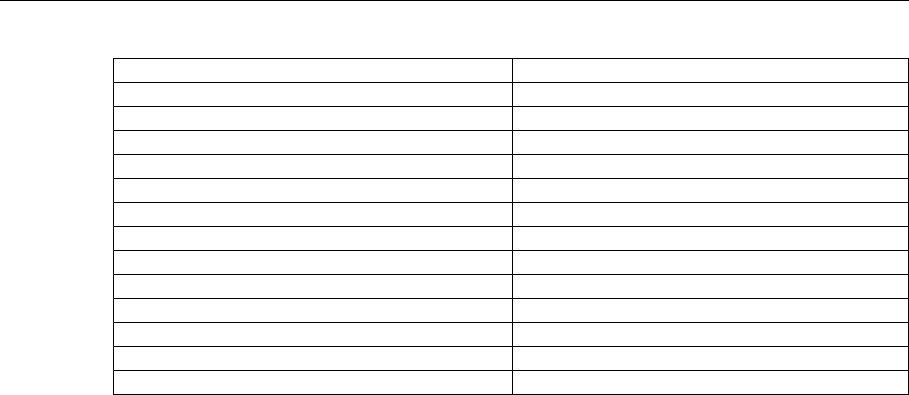
System Configuration
<PTZ enabled>
(0)NO or YES
(1)NO or YES
(2)NO or YES
(3)NO or YES
<video is open>
(0)NO or YES
(1)NO or YES
(2)NO or YES
(3)NO or YES
[SYSTEM ADDON]
<NTP Update Interval>
3
System Configuration Via Telnet
Telnet Commands
Video Server has a Telnet daemon that allows administrators to access some seldom used
functions. Using any general terminal program to connect to Video Server will prompt the user for
a password. The Username is not requested since only administrators can access the Telnet
daemon. The password is the same as that used for web access. After logging in, type “help” for
the command list. If “debug” or “dinote” is not executed, Telnet will disconnect automatically
after being idle for 1 minute.
System core debugging
General activities are recorded into SYSTEM.LOG continuously, but information about abnormal
status is not recorded. Administrators can type the “debug” command to examine in-depth core
debugging information. This causes Video Server to start dumping the detailed debugging
information while the system is running. This is useful for examining if any errors have occurred
when the system operates abnormally. The stored information will be cleared automatically after
the dump. Video Server will continue to dump new messages unless the connection is broken. If
Telnet is not connected, messages will be stored until administrators re-login.
Monitor changed status of digital inputs
Typing “dinote” will make Video Server send the current status of all digital inputs. After that,
Video Server will continuously monitor DI status and send messages only when the state has
changed. For example, after typing “dinote” the terminal will display
DI1=L
DI2=L
DI3=L
DI4=L
and after DI2 changes to H, the terminal will display
DI2=H
VPort 2140 User’s Manual
4-27


















